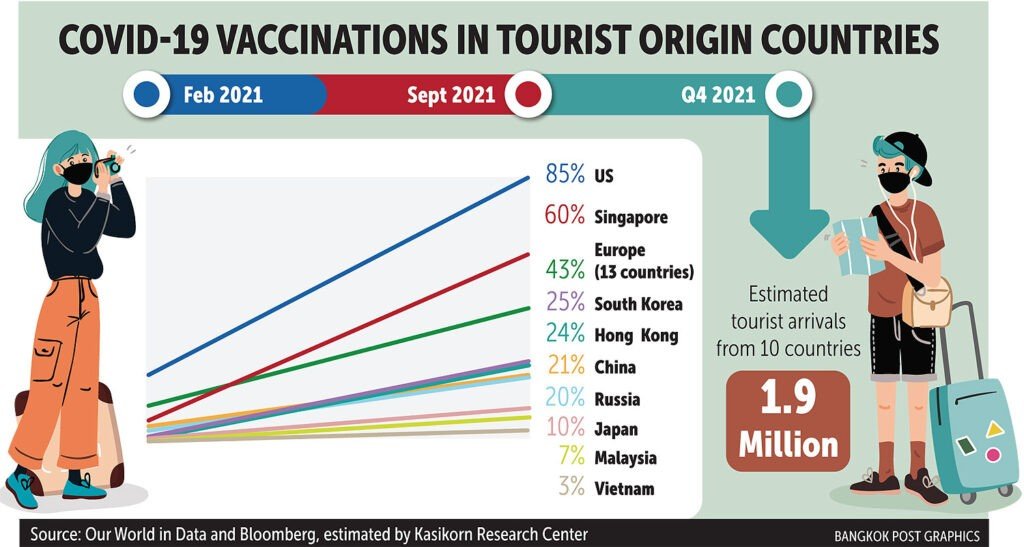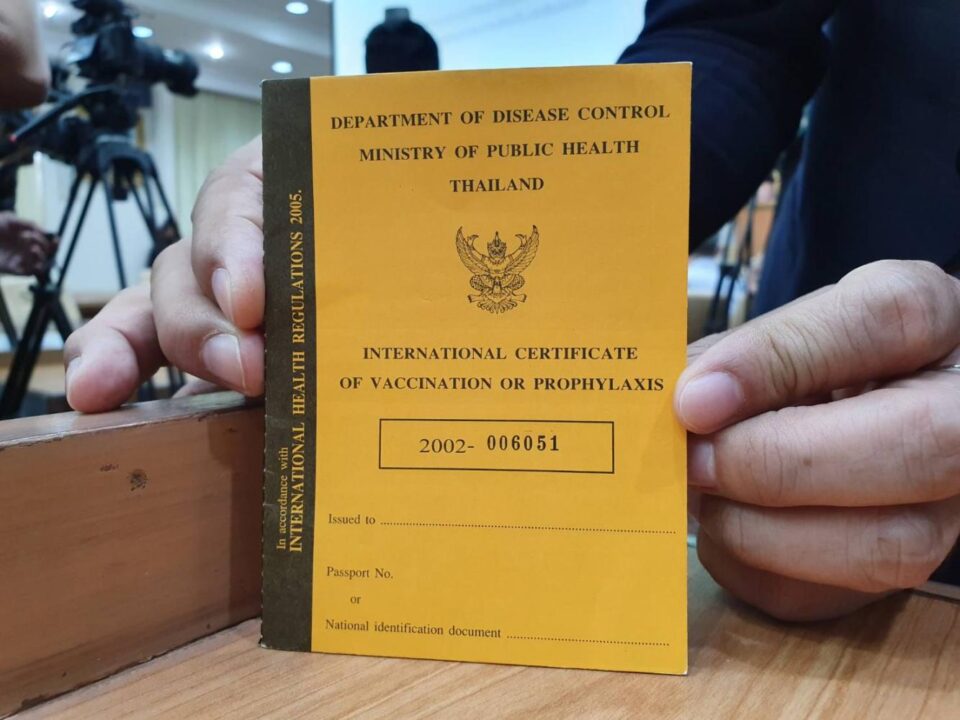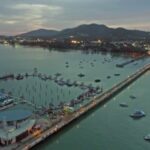Domestic inoculation is key in bid to reopen the borders
The Tourism and Sports Ministry announced a more relaxed mandatory quarantine scheme last week called “Area Quarantine”, which is scheduled to be ready on April 1.
Under the plan, vaccinated tourists are required to quarantine for only seven days instead of two weeks within hotel areas. After one week, they can travel to any province.
Those who have not been inoculated must spend 10 days in quarantine, but they are entitled to roam around restricted areas within the property.
Specific areas of the country, such as islands, are joining the pilot project. Most are destinations in the South, which are heavily reliant on international markets.
The move is seen as the first step before opening Thai borders to the world with quarantine-free entry in October.
But is this endeavour worth the effort? Or will it be another failed attempt like the special tourist visa (STV) scheme that required visitors to go through complicated procedures and was very costly? Will it win the approval of local communities? The “Phuket Model” was undone last year because locals were not convinced it was safe.
The most important question is whether this scheme provides sustainable growth for tourism when the nation lags other countries in providing a mass vaccination programme.
Dillip Rajakarier, group chief executive at Minor International, said Thailand needs to take the right steps to open up to tourism, starting with inoculating the population until herd immunity is achieved.
“If we look at other countries where mass vaccination has progressed well, such as the UK where 30% of the population has been vaccinated, they made it a priority to ensure their people are safe before easing travel restrictions,” he said.
Mr Rajakarier said the first step is the most important, so it urges the government to speed up Thailand’s vaccination programme, as this is the safest method in which to reopen the country. Mass inoculation is needed before granting quarantine-free entry for vaccinated tourists, he said.
However, the number of vaccine doses the government has ordered falls far short for a population of nearly 70 million, said Mr Rajakarier.
However, the number of vaccine doses the government has ordered falls far short for a population of nearly 70 million, said Mr Rajakarier.
Private hospitals and companies are pleading with the government to allow them to import vaccines independently to distribute them either to employees or people who can afford to purchase them, but numerous obstacles remain preventing local communities from gaining herd immunity quickly.
He said Minor Group is ready to allocate a vaccine budget for its employees, but it cannot obtain vaccines as hospitals are barred from attaining regulatory approval. The average prices from vaccine manufacturers in the Thai private sector are higher than in other countries, said Mr Rajakarier.
To hasten the process, he suggested Thailand’s Food and Drug Administration expedite the approval of more vaccines that have already received the green light from national public health agencies in other developed countries such as the Centers for Disease Control and Prevention in the US.
Thailand should urgently consider more vaccine options from other manufacturers around the world,” said Mr Rajakarier.
Once herd immunity is achieved and the quarantine-free option is available, the government should prepare an efficient Covid-19 passport, making sure the country adopts the digital technology required to facilitate seamless entry, he said.
One option is the International Air Transport Association (IATA) travel pass.

Thailand’s path to economic recovery will mostly depend on the tourism industry outlook and when the country reopens to foreign tourist arrivals. Covid-19 vaccines and the reopening policy of each country will have a significant impact on the recovery of Thailand’s tourism industry in 2021,” said Kevalin Wangpichayasuk, assistant managing director of Kasikorn Research Center.
The development of vaccination programmes in tourist origin countries and Thailand are key factors determining the tourism recovery outlook, said Ms Kevalin.
“Other crucial factors are whether Thailand’s quarantine period is reduced, clarity on vaccine passport policy and whether countries will allow their citizens to travel to Thailand,” she said.
The think tank’s forecast of 2 million foreign tourist arrivals is based on the progress of vaccination programmes in 10 countries the comprise the bulk of arrivals in Thailand such as China, European countries, Japan and the US. It is also based on the inoculation timeline announced by the Thai government.
The projection of 2 million foreign arrivals is quite low, meaning tourism must still rely on domestic travellers for revenue, said Ms Kevalin.
bkk pos





